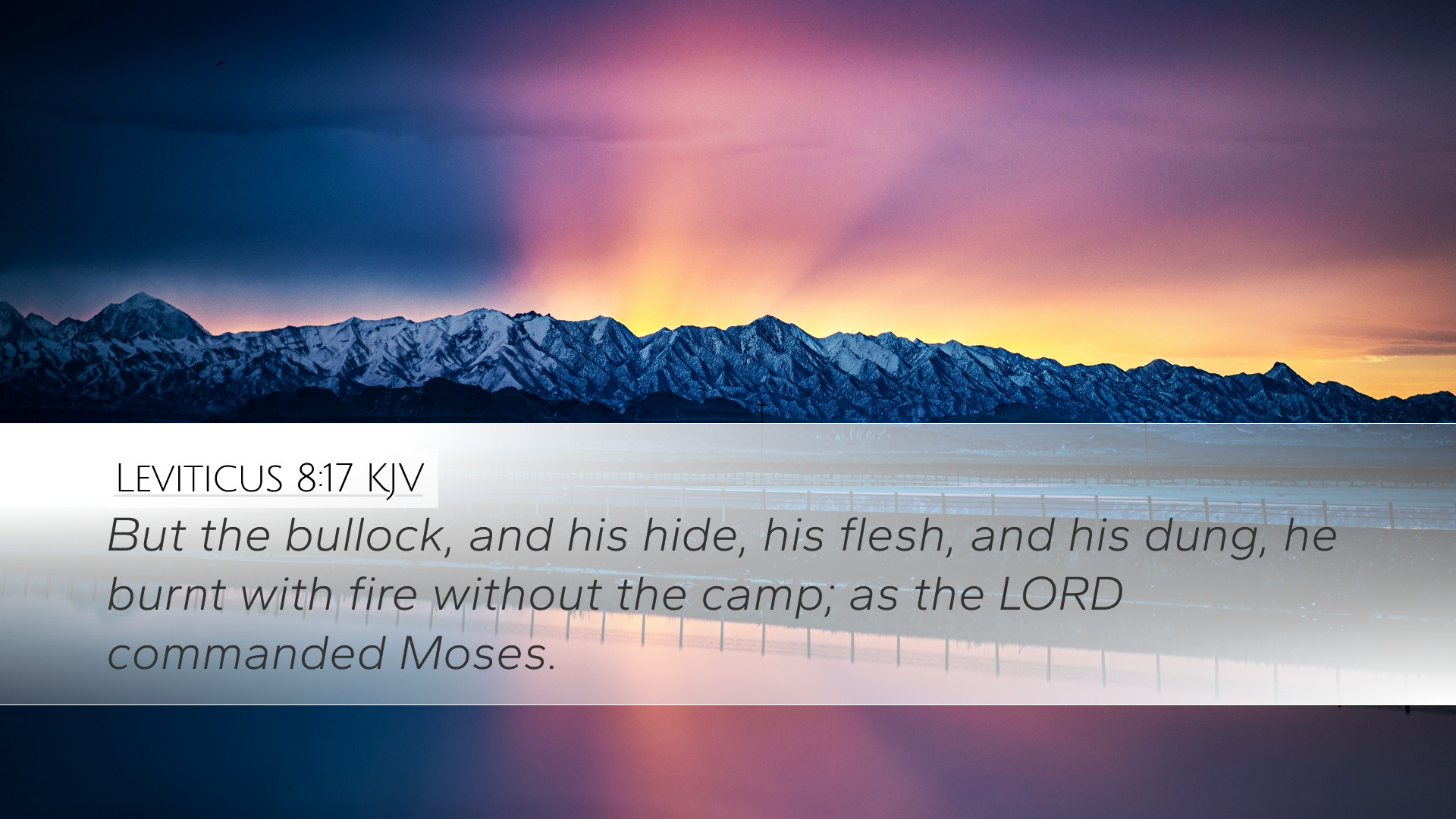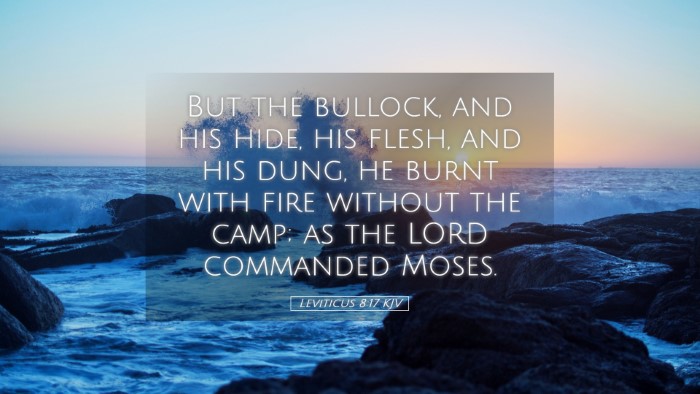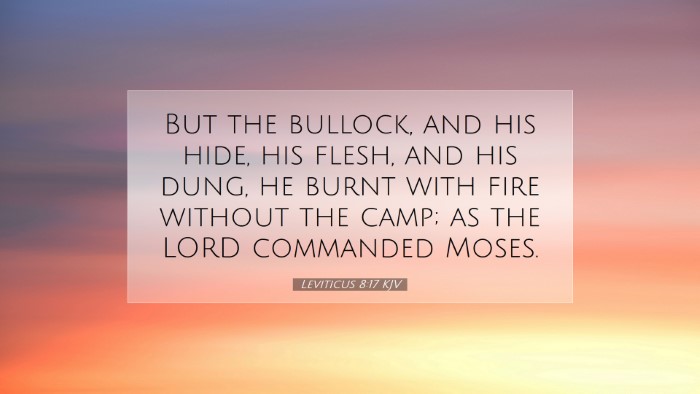Commentary on Leviticus 8:17
Verse Reference: Leviticus 8:17 - "But the bullock, and his hide, and his flesh, and his dung, he burnt with fire without the camp, as the Lord commanded Moses."
Introduction
Leviticus 8 focuses on the consecration of Aaron and his sons as priests, outlining the instructions given by the Lord to Moses. The sacrificial offerings in this chapter signify the necessity of atonement and sanctification for effective priestly ministry. This specific verse, Leviticus 8:17, provides crucial insights into the symbolism of sacrifices and the importance of obedience to divine instructions in the context of worship.
Commentary Insights
Context and Significance
The broader context of Leviticus reveals the Israelites' journey through the wilderness and their need for guidance in approaching a holy God. Matthew Henry notes that sacrifices were essential in maintaining a proper relationship with God, particularly in recognizing the seriousness of sin and the need for atonement. This verse encapsulates the judgment of sin and the necessity for purification before approaching holiness.
Symbolism of the Sacrifice
Albert Barnes highlights the significant role of the bullock in sacrificial symbolism. The bullock represents strength and service, correlating to the qualities expected from the priesthood. Its burning outside the camp serves as a vivid reminder of sin's destructive nature and ultimately reflects the ultimate sacrifice of Christ, who bore our sins outside the city, as referenced in Hebrews 13:11-13.
Examination of Elements of the Sacrifice
- The Bullock: Represents sin and the need for atonement. The choice of a bullock for the sin offering illustrates the severity of transgression—reflecting the sinfulness of Israel's actions.
- The Hide and Flesh: These elements signify the totality of the animal being offered. No part is withheld, symbolizing the complete surrender required from the priests in service to God.
- The Dung: The dung represents the filthiness of sin, reinforcing the concept that sin must be completely removed and dealt with outside the camp, echoing the idea of purification.
God's Command and Significance of Obedience
Adam Clarke places emphasis on the phrase "as the Lord commanded Moses." This expression underlines the importance of divine authority in worship practices. The prompt execution of God’s commands is pivotal in maintaining the sanctity of the worship environment. The careful adherence to these instructions reflects the gravity of approaching God and maintaining holiness in ministry.
Theological Reflections
Leviticus 8:17 communicates several key theological principles critical for pastors, students, and theologians:
- Holiness of God: The necessity of sacrifices illustrates the separateness of God from sin and reinforces His holiness.
- Atonement and Sacrifice: The ritual highlighted the necessity of atonement, focusing believers on Christ as the ultimate sacrifice.
- Community and Sin: By taking the sacrifice outside the camp, it reflects the alienation sin brings within the community of believers, suggesting the importance of communal responsibility in holiness.
Conclusion
In summary, Leviticus 8:17 is profoundly significant, encapsulating the themes of atonement, holiness, and obedience. The public domain commentaries provide valuable historical and theological insights, enriching our understanding of worship practices and the nature of God. As we explore this verse, we are reminded of the deep reverence we must hold in our approach to God and the call to maintain holiness in our lives.


